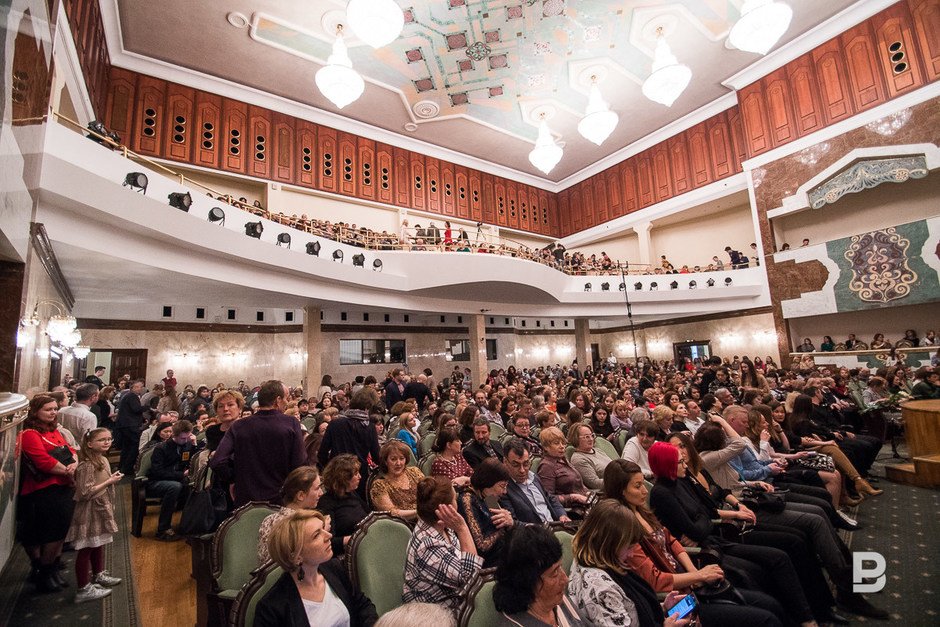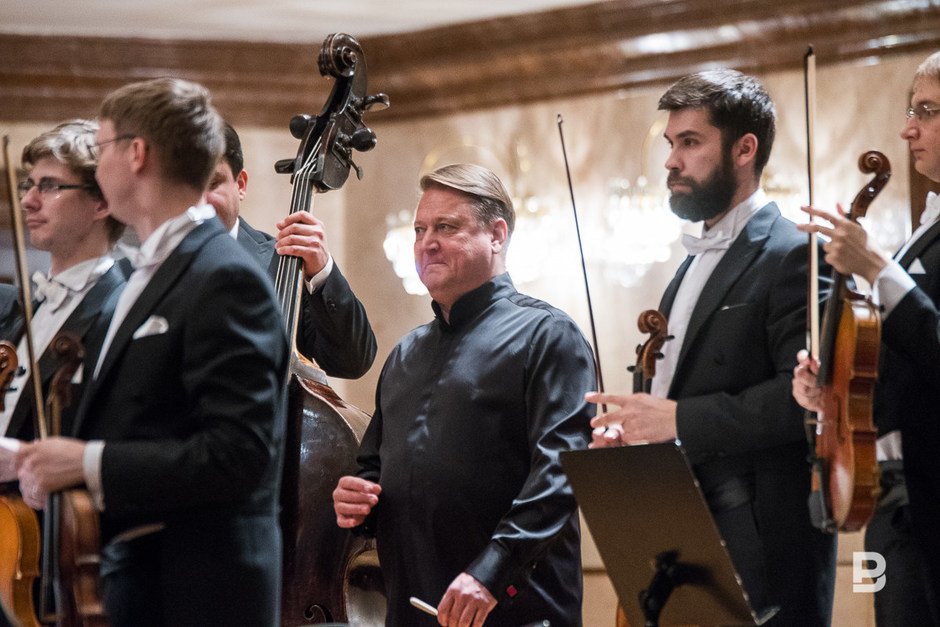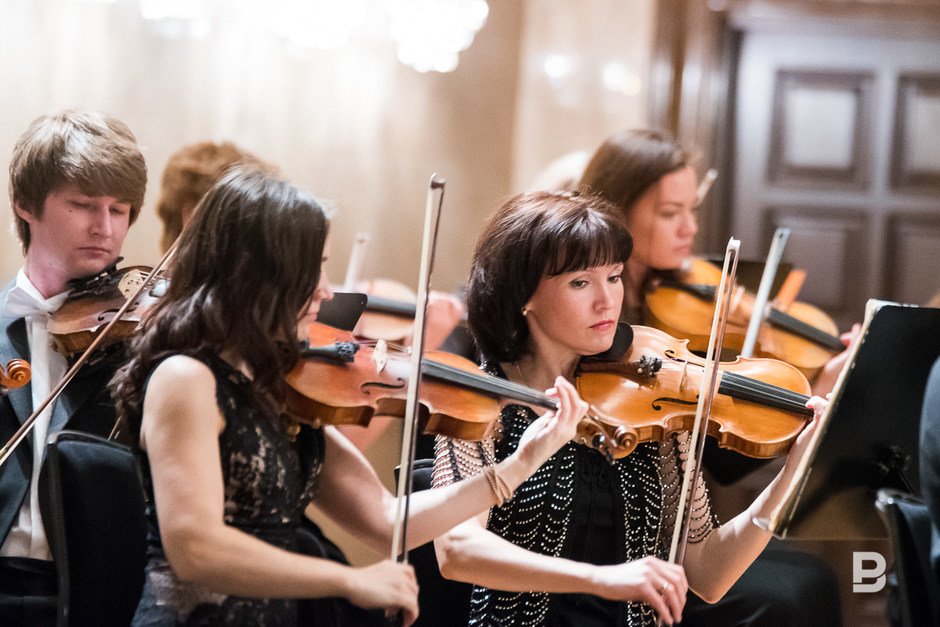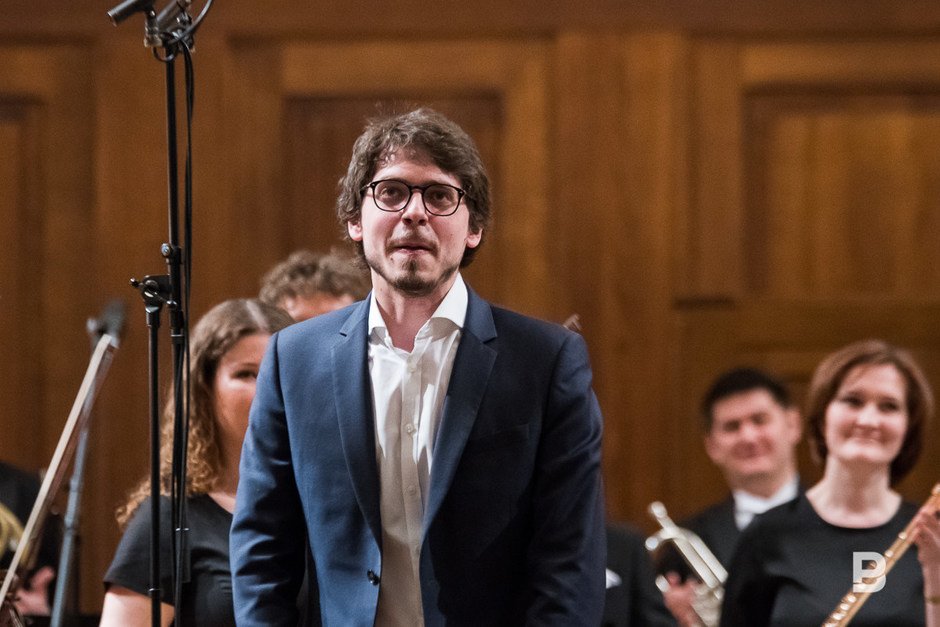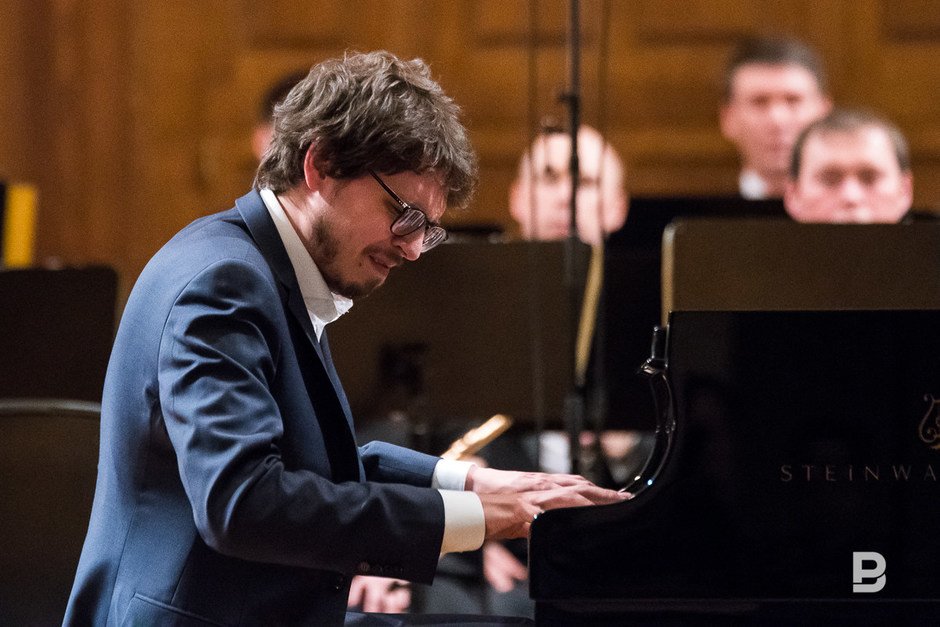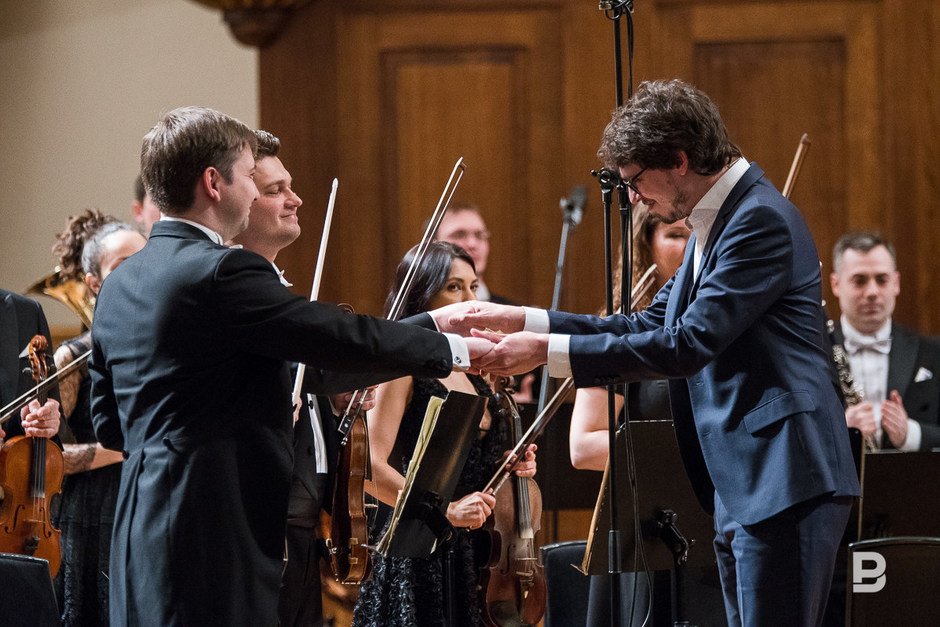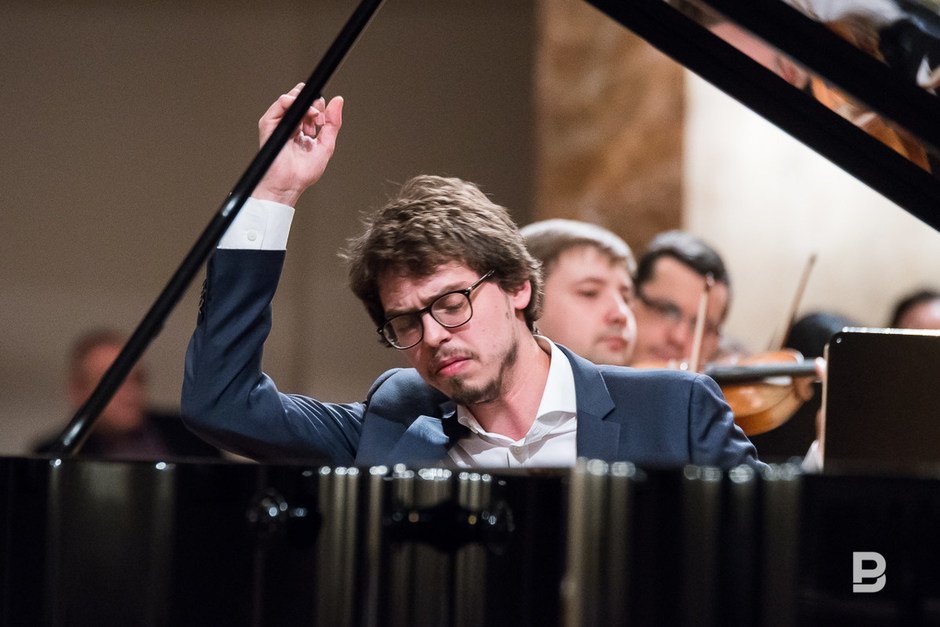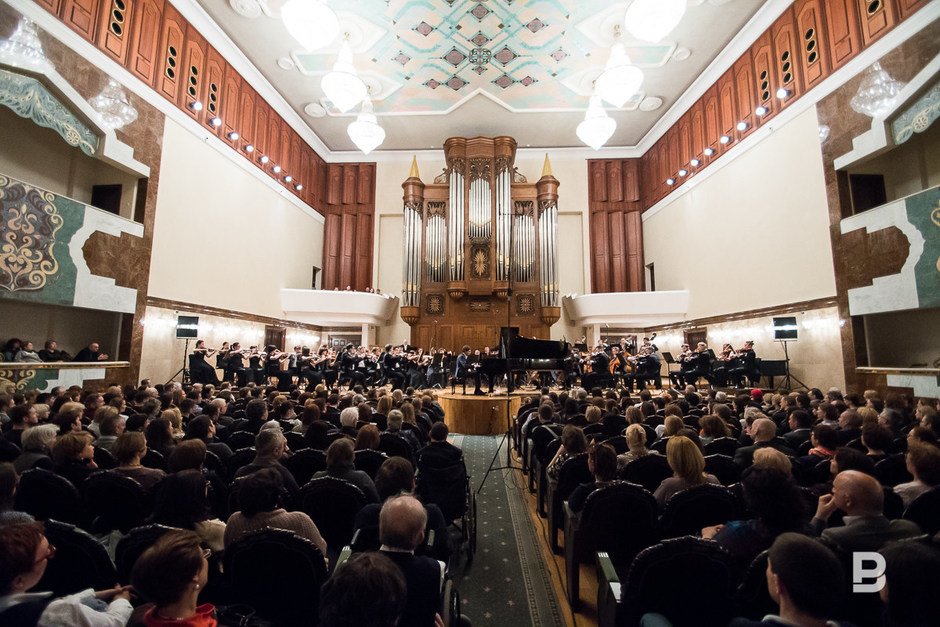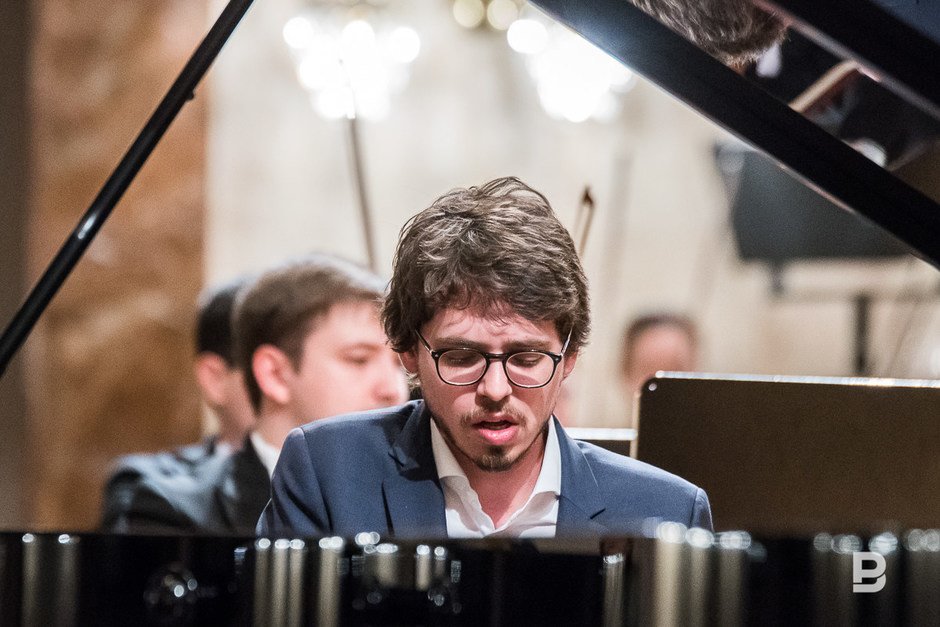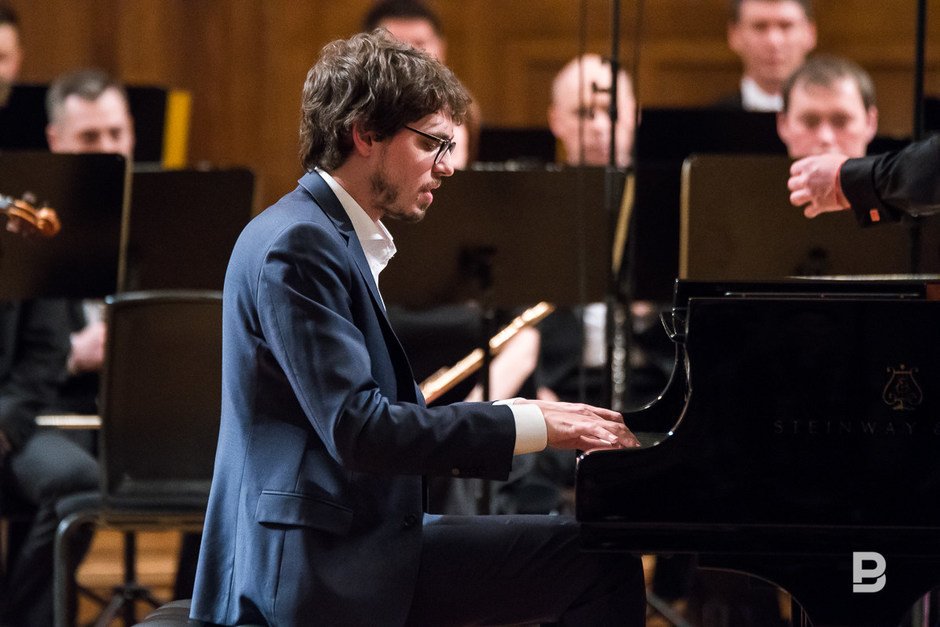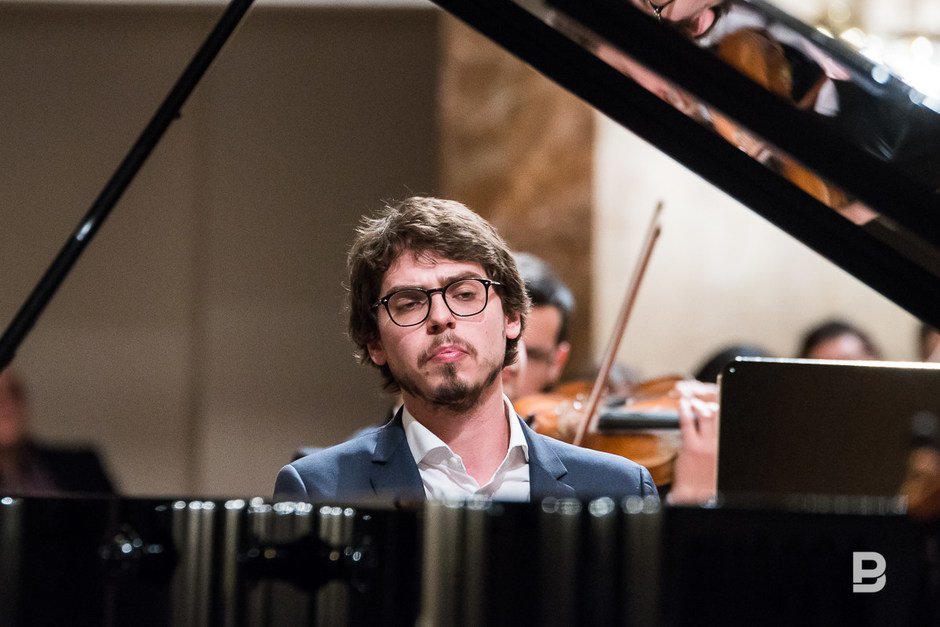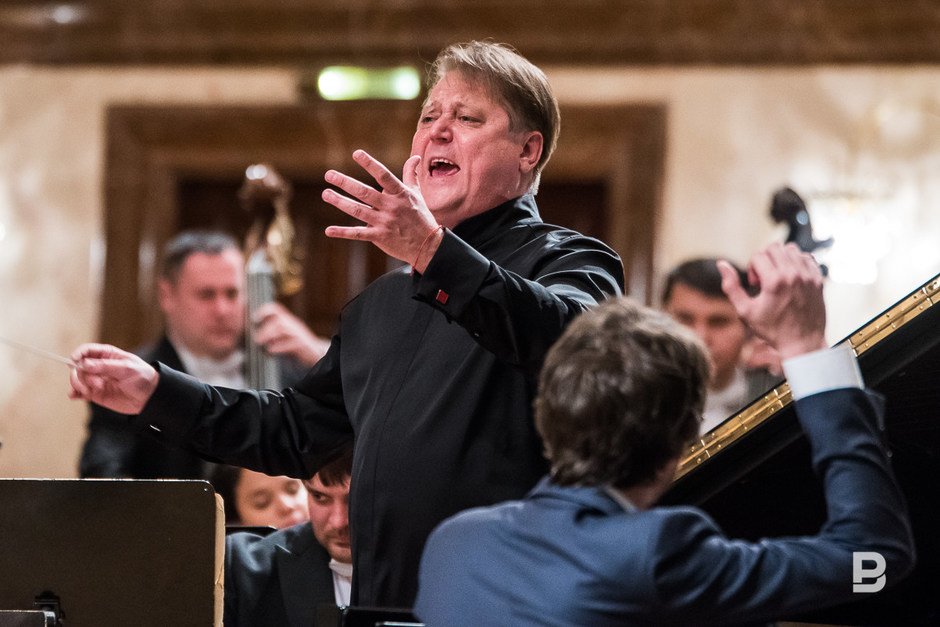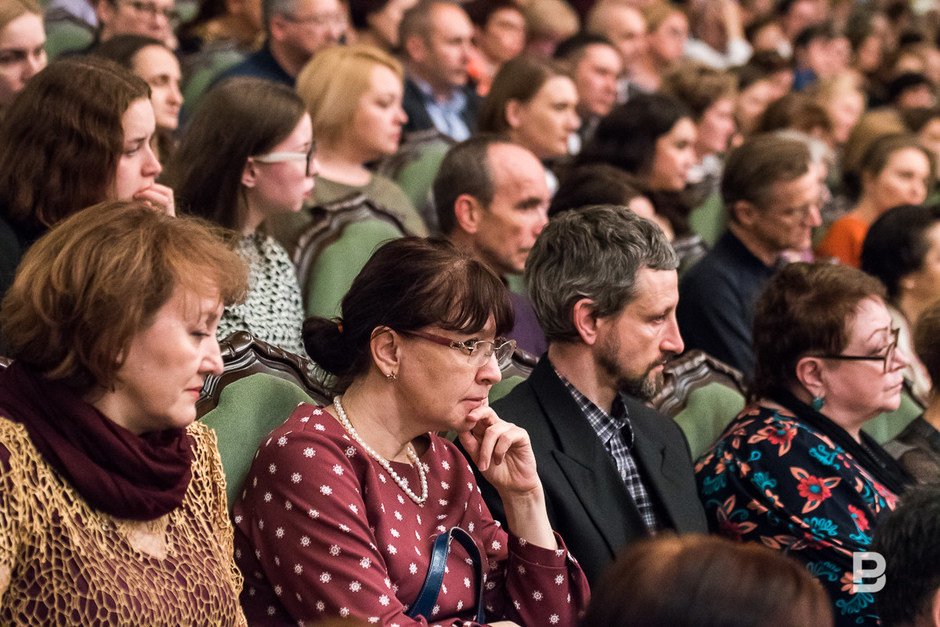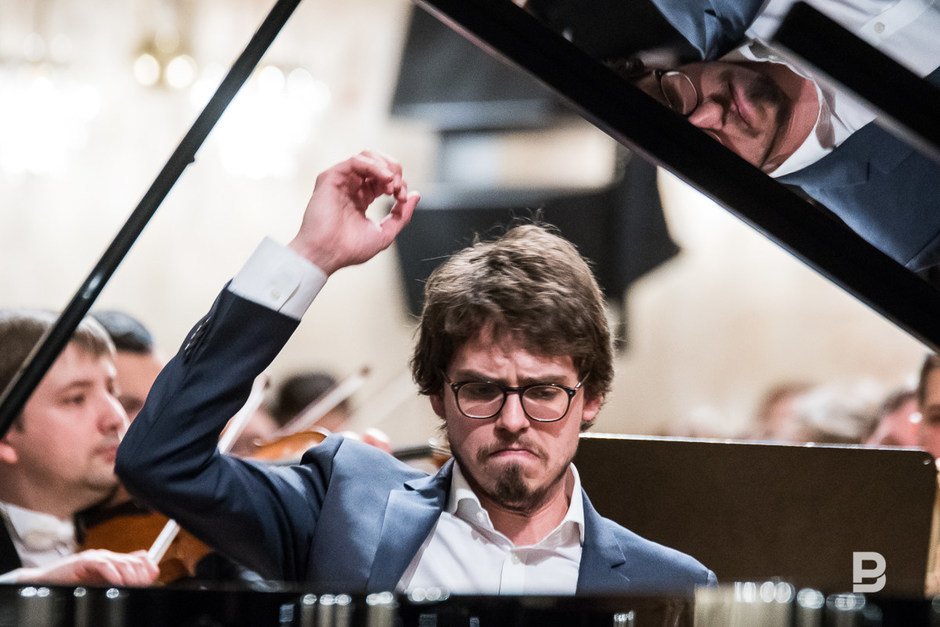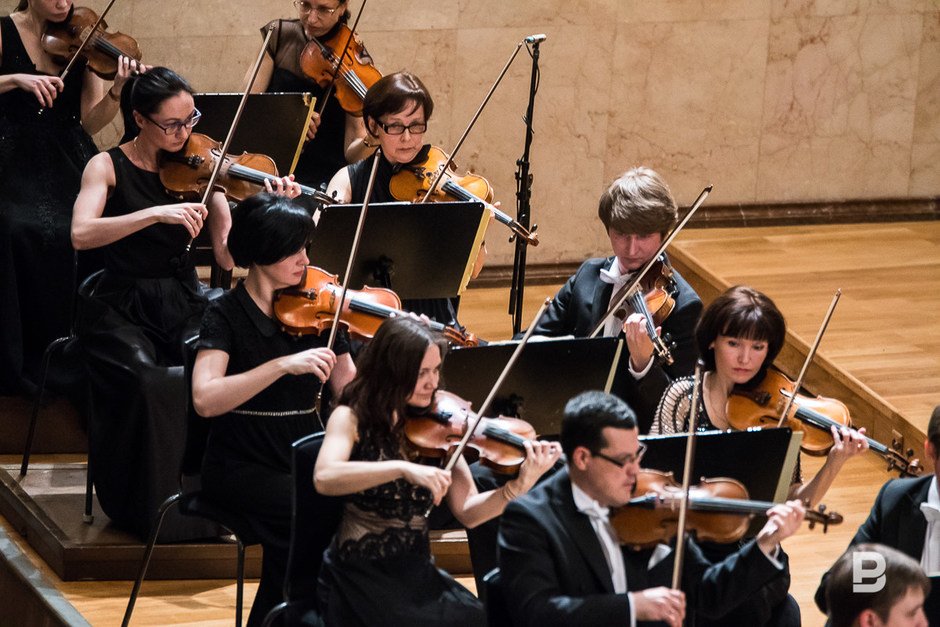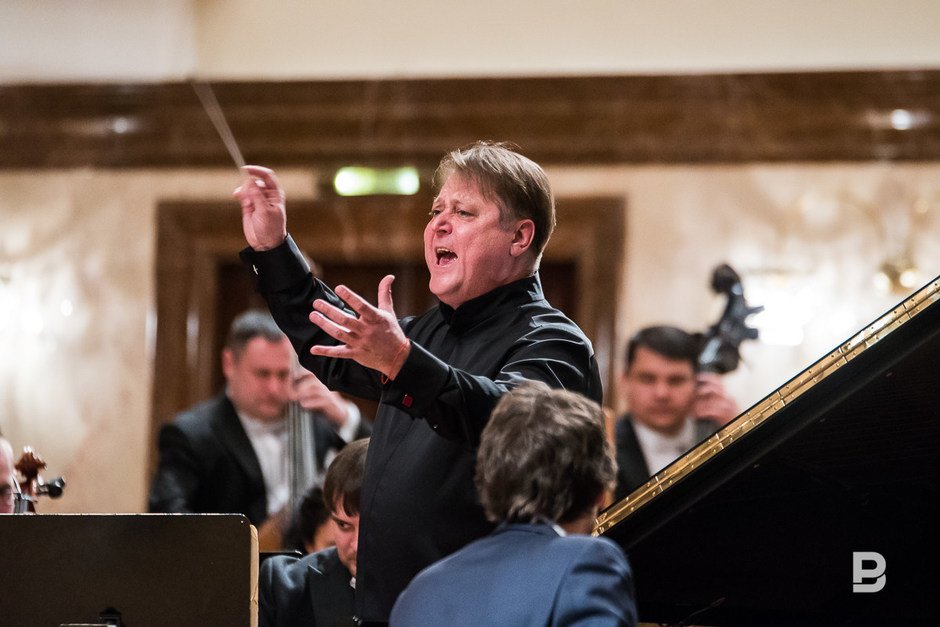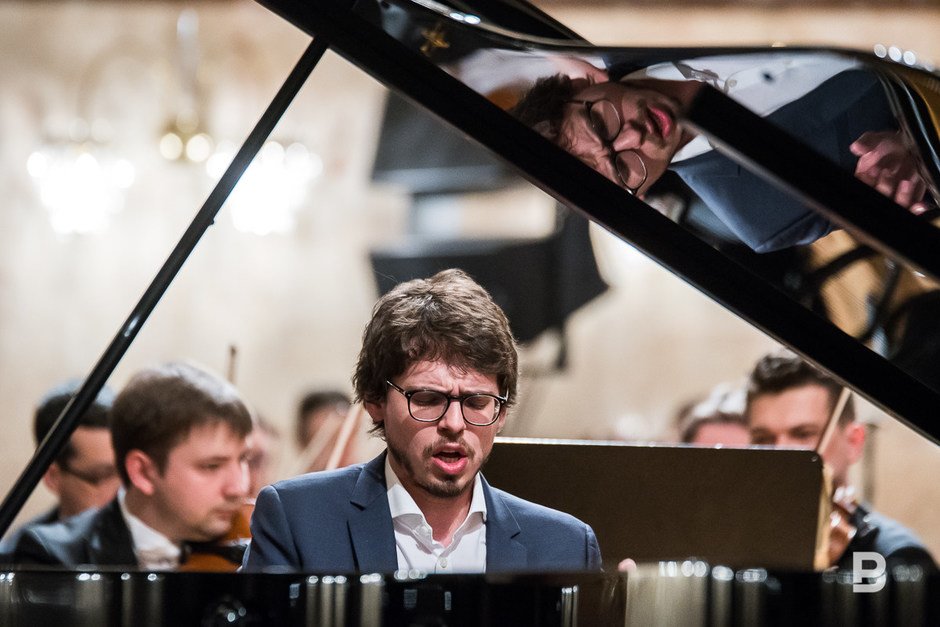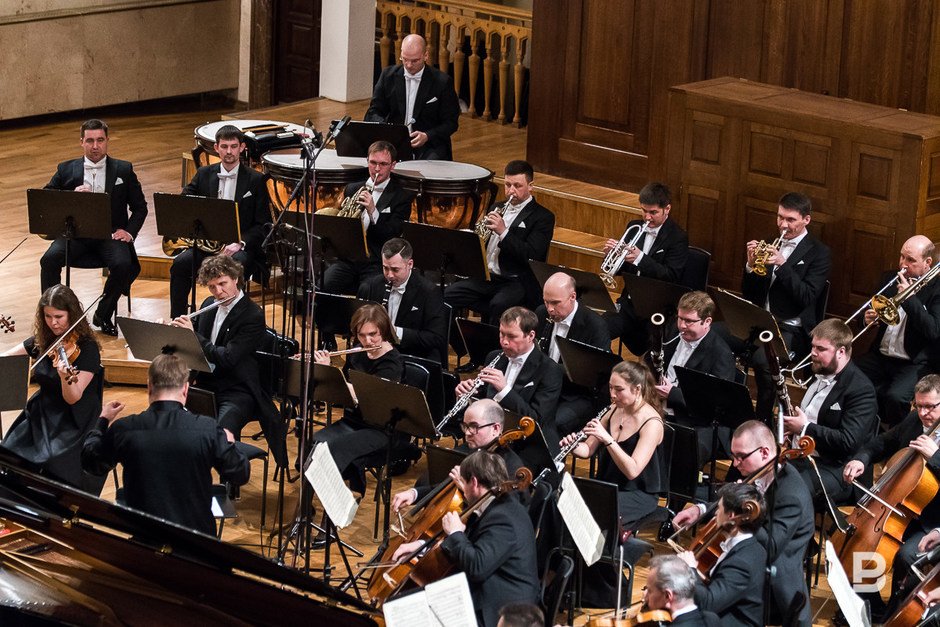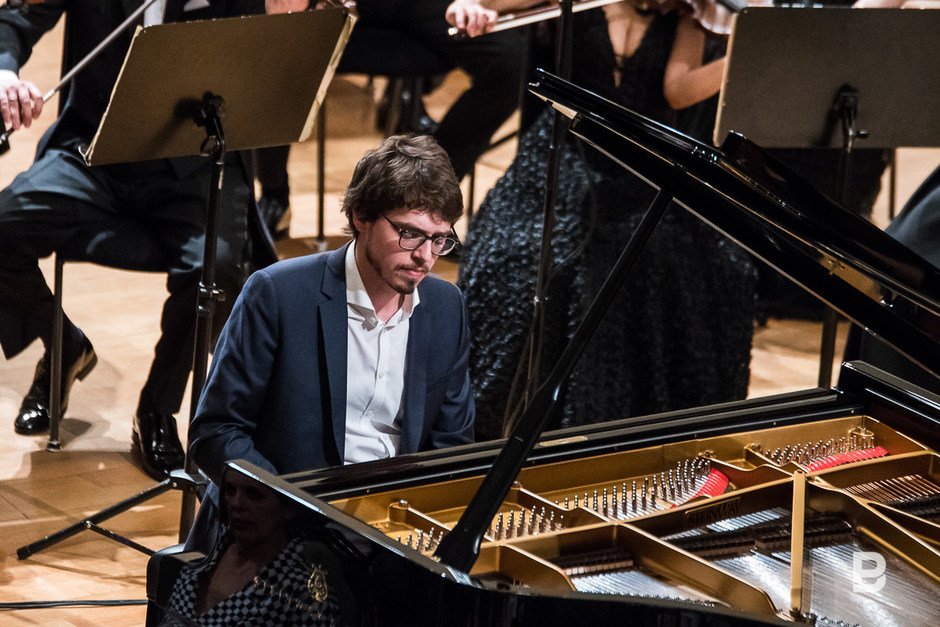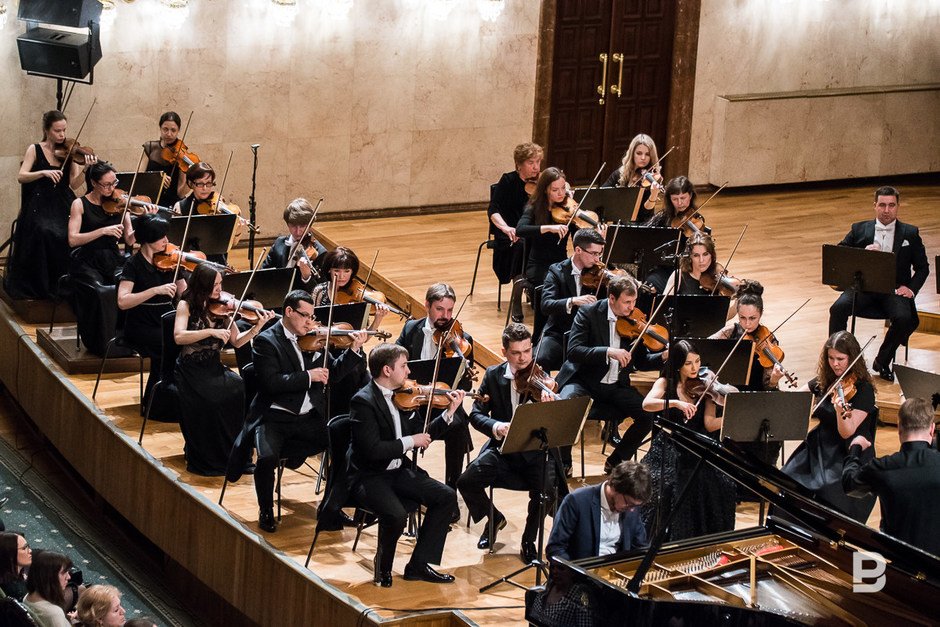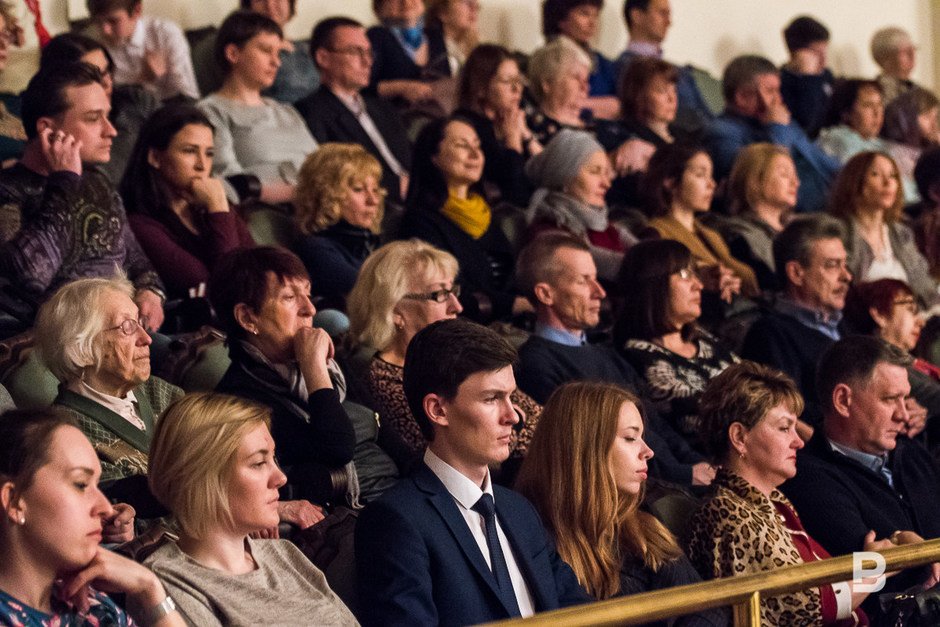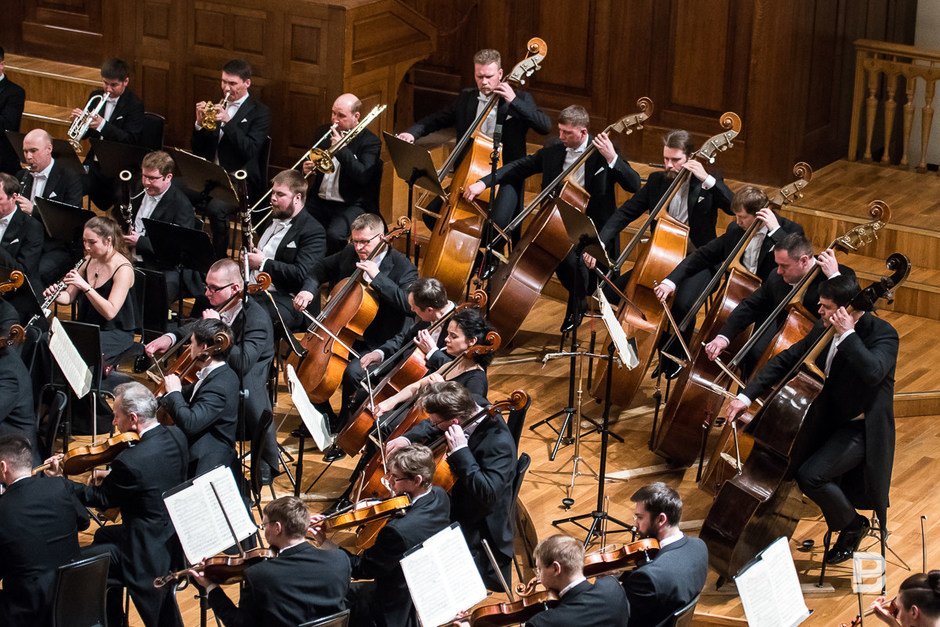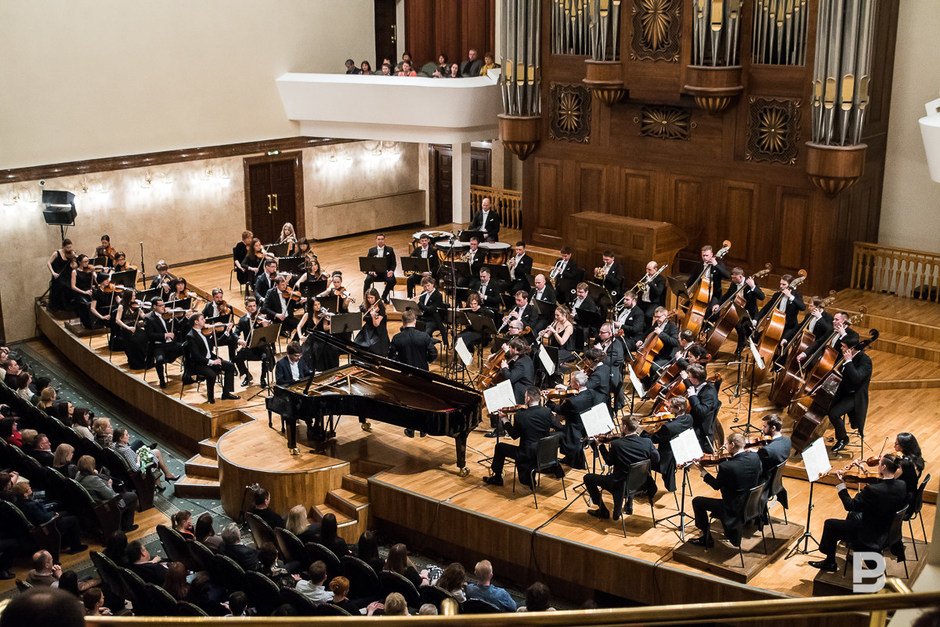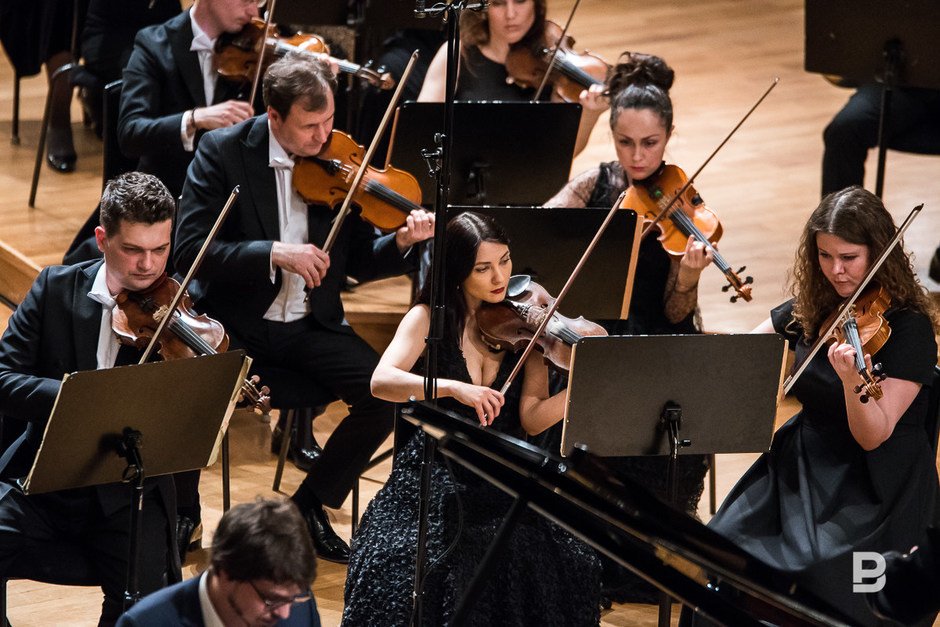Rakhlin Seasons: ''star abyss'' on the way to itself
The International Festival Rakhlin Seasons, which has been held in Kazan for the eighth time, finished on April 20 in the Saydashev State Great Concert Hall. Major sensation of the festival — Lucas Debargue – performed in the final concert, extra tickets for which were asked a quarter of a year before the concert. Read the details in the material of Realnoe Vremya.
''The wind is rustling over Poland…''
Lucas Debargue, the main sensation of the XV International competition named after P.I. Tchaikovsky, came to Kazan, squeezing out a day and a half from a busy tour, of course, through the efforts of Maestro Sladkovsky. The name of Debargue has been heard a lot in the last three years not only among music lovers, and it seems that we all know everything about him.
Yes, a humanities student (he studied literature at the University of Paris). Yes, Russian roots (a grandmother from the family of emigrants of the first wave). Yes, impartially speaking, musical education in some way is far from the classic. An original, unique phenomenon. The fourth place in the competition named after P.I. Tchaikovsky and the critics' prize. He loves and often sings Russian music. He gives 60-70 concerts a year. And yes, until you hear Debargue, you know nothing about him.
He went on stage as if a little embarrassed — tall, thin, with lush hair, stylish glasses. Didn't look like a star. If he was wearing a scarf he would look like a typical inhabitant of the Latin Quarter or studios in the area of the Boulevard Saint-Michel. Here one meets such young people at every turn. They are smart, ironic, and sometimes seem defenseless. But Debarge at the piano – it is not just ''such a young man''. Now he is a ''thing-in-itself'', now he amazes with clarism.
That day he was soloist in Piano Concerto No. 1 by Frédéric Chopin. He is 27 now, and he is almost the same age as the composer of the time when this work was composed. Three parts of the concert — three pictures of Chopin's memories and thoughts about lost Poland. The three parts, which were written around the same time when the uprising was brutally suppressed in Poland and one hope for freedom became less. Somehow miraculously the pianist and conductor grasped all of this.
Perhaps, the main advantage of Debargue is in his phenomenal intuition, when he, like a psychic, experiences while playing a series of transformations and conducts the part as if someone dictates to him from on high. When he achieves the celestial sound of crystal bells, characteristic of Chopin. Or when he suddenly relives a note of longing that deep hidden by the composer — the longing that is characteristic only of Polish romantics, whose romanticism mixed with the love for the Motherland.
''Silver-black Chopin''
''Poland is not a state, Poland is a land'' — another Polish romantic, who lived later in the twentieth century — Stanisław Dygat, wrote in one of his best works, the novel Carnival. Piano Concerto No. 1 by Frédéric Chopin in Alexander Sladkovsky's interpretation is about this land. The one torn apart by contradictions and stronger neighbours, suffocating from the love to the Motherland and from their own ambition, with its ''three prophets'' — Słowacki, Krasiński and Mickiewicz, with the eternal search for ''a diamond in the ashes''. All of this unconsciously, providently persists in the concert by Chopin. This layer just should be guessed, felt, pulled gently out. And the maestro did it.
The romanticism of Sladkovsky during the performance of Chopin's concert seemed to reach its climax, behind which there can be only one thing — that same ''star abyss'', ''the abyss of space'', so beloved by Adam Mickiewicz and artists close to him. The contemplation of the first part, turning into memories of this lost land in the second part, with the third energetic part, where the echoes of folk melodies are heard.
With that, as an illustration to the lines of an unknown poet: ''The wind is rustling over Poland — Chopin silver-black.'' This ''silver-black'' music cannot be fun, it will always be with noticeable taste of tears. For a moment it seemed that the tears appeared in the eyes of the maestro, when he turned to the audience for bend.
It turned out to be the amazing duo of two romantics, it seemed that the pianist and the conductor understood each other in some telepathic way, when the extreme emotionality of Sladkovsky was shaded by a certain proportion of prudence characteristic of the new generation, of Debargue. Of course, there were encores — Lucas Debargue after the performance of Chopin's concert three more times appeared on the scene. During the intermission near the dressing room of Debargue there was a long line — the audience penetrated behind the scenes and was eager to get autographs of the pianist.
To bright pick
The second section of the final concert of the festival — the Organ Symphony by Saint-Saëns, the organ part was performed by Evgeniya Krivitskaya. The maestro is being collected and concentrated. He goes on stage and, as if willing to make a watershed, internally deviate from the performance of Chopin, pauses for ten seconds. And only then he gives a sign to the orchestra.
Then it follows his monologue — passionate, confessional, inspired. Two parts of the Organ Symphony – it is a person's thoughts, his struggle with himself, this ambivalence emphasizes both the play of the orchestra and the powerful part of the organ. And, as always, the lyrical hero of the symphony — the conductor.
The man, this apex of creation, he seeks his inner ''self'', he seeks the truth, he is not always pleased with himself — this is the first part of the symphony, where, it seems, there is more reflection than action. And the triumphant second part, it is like the victory over doubt when the hero finally finds those only path to self-improvement he needs. The path to truth and goodness.
A thorny path, but what is easy is never solid.
When the audience was leaving the concert hall, young moon was shining above Kazan. It was sailing in this abyss opened to the eyes, full of stars — enticing and seeming impossibly close. The illustration to the final concert of the festival, granted by the Supreme.
